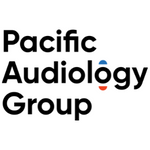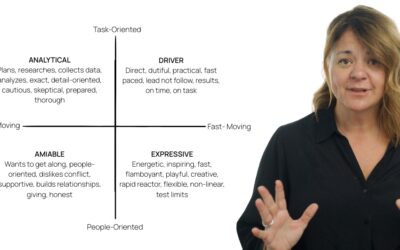Delegation & Support Personnel in Healthcare
The use of support personnel by medical and health care professionals is commonplace. Some examples are dental hygienists who support dentists, nurses aides to support nurses, and for physicians, there could be a range of support ranging from interns, nurses, or medical office assistants. Some specialists have their own support staff, for example, radiology technicians who support radiologists. The benefit of using support personnel is to allow for more efficient care, ultimately benefiting the patient by increasing access to care and reducing wait times.
There is notable variation in the training for support personnel jobs. Larger support personnel fields have developed to include their own college-level training programs and regulation. Dental hygiene is an interesting example. In British Columbia (we’re in Canada, remember!) dental hygienists have their own regulatory college, whereas in Ontario, the Royal College of Dental Surgeons of Ontario requires their members to assign duties to dental assistants. But in both provinces, dental hygienists have their own educational programs. This sort of variation is commonly seen with supportive roles, highlighting how unique each profession and geographical area can be. Despite differences in nomenclature, regulation, and education, the goal remains the same: delegation by highly trained healthcare professionals to support personnel can be instrumental to efficiency, client care, and best practice. Improved access to care, and not monetary gain or convenience, must be the primary reason to delegate in healthcare. Regulatory policy and bylaws exist in most places to ensure that these standards are upheld.
Audiology (and we will focus on audiology here rather than hearing care in general) has not been quick to formally standardize support personnel, and where we do see it, there is much inconsistency from one office to another. Training programs do exist but are typically bundled in with speech-language pathology assistants. The hesitation to create or adopt a formal support personnel title for audiology is multifactorial, and we will exam some of the variables.
The Role of Support Personnel in Hearing Healthcare
…many fields welcome (support personnel) openly, however there has been some resistance to support personnel within audiology...
Many leading professional associations and some regulatory bodies endorse the existence of audiology support personnel, often called ‘audiology assistants’, or ‘audiometric technicians’, though not limited to these titles. The American Academy of Audiology recently released a position statement on support personnel describing their role as to “… improve practice efficiency and productivity by increasing access to audiologic services, reducing wait times, enhancing patient satisfaction, and reducing costs by performing tasks that do not require the skills of a licensed audiologist.”
Currently, audiology assistants must operate exclusively under a licensed audiologist, who is responsible for the training and supervision, along with patient outcomes. The audiologist maintains all legal and ethical responsibilities. At this stage, audiology support personnel by any name is not an independently regulated profession anywhere we have looked. This means that everything the audiology assistant does must delegated by the supervising audiologist. There are different forms of delegation as well. Understanding the terms “one to many” and “one to one” delegation can be helpful here.
One to many delegation means that the assistant is trained on a task and so is able to perform these tasks repeatedly, for any patient qualifying to book with them. Good examples of this in audiology would be hearing screening, or ear impressions. One to one delegation is different and can be thought of as more closely supervised. Here the audiologist would be detailing the care they want their support personnel to provide, for a specific case. This framework is helpful when thinking about what your audiology assistant could do in your clinic.
Typical Scope of Practice:
Equipment maintenance
Hearing aid repair
Neonatal hearing screening
Patient prep for electrophysiological and balance testing
Hearing conservation
Air conduction testing
Assisting in audiology testing
Training and Education for Audiology Support Personnel
There is still a dependence on an on-the-job learning model. A consensus we have seen is that at least a high school education is a pre-requisite for audiology assistants to begin training (AAA). Formalized training programs exist and differ in different geographical regions; however, the supervising audiologist is ultimately responsible for ensuring competency, overseeing care, and for on-the-job training.
The training programs that do exist are not exclusive to our profession. They are typically bundled in with Speech-Language Pathology, an example being the many Communication Disorder Assistant (CDA) programs in Ontario. The lack of audiology-specific training programs is an obvious barrier to having more assistants in private practice, as on-the-job training without any standardized base level of education can be seen as cumbersome to audiologists who are busy navigating daily clinic life.
Some large retail hearing health groups have developed their own take on support personnel. Sometimes called an audiometric technician (or Aud Tech), these staff often work in administrative roles, as well as performing tasks like hearing aid cleanings, product orientations, and hearing screenings. Training here is usually developed internally and focuses on removing some repetitive tasks from the audiologist’s schedule.
Resistance to Support Personnel
Whereas many fields welcome them openly, there has been some resistance to support personnel within audiology, notably in regard to the differing use of support personnel between ENT physicians and audiologists. ENT physicians often hire support personnel to perform diagnostic audiology and vestibular testing. Audiologists have expressed concern that they might not have sufficient training, and also that they could limit jobs for audiologists. This may affect the willingness of audiologists to train support personnel for fear of cutting out the audiologist, at least in an ENT setting. AAA states that the appropriate supervisor and trainer for an audiology assistant is an audiologist. It may be short-sighted for audiologists to not take ownership in setting the standards and limitations of the audiology assistant.
Who is Getting it Right?
New Zealand has an interesting model for hearing care and support personnel. They use Hearing Therapists, who have formal educational qualifications and training, and their stated goal is to help people adjust to living with hearing loss. A hearing therapist assists people to manage their hearing loss in their everyday lives, including at home, at work and in social situations.
Anyone can see a hearing therapist, and often an audiologist will refer someone for say three to six sessions for hearing therapy after hearing aids are first fit.
With the New Zealand model, the role of testing and diagnostics is reserved for the audiologists and thus protected. It allows for formalized training and a level of standardization, without threatening the profession of the audiologist.
Roles of the NZ
Auditory Therapist
Information about services
Information on funding options
Teaching hearing device use
Information about tinnitus
Referral to other health professionals
Communication management
Support Personnel for Hearing Instrument Specialists
Hearing instrument specialists (who also go by many names), often do many of the same things as audiologists, and may also benefit from using support personnel. In Canada, we have a formal two-year education requirement, but unfortunately, there is no global standard as there is with audiology. So there will likely be much debate as to whether it is appropriate for the HIS to use support personnel. Our regulatory college in British Columbia, for example, allows for the use of support personnel by a Registered Hearing Instrument Practitioner, but limits the tasks which can be delegated to the assistant.
In Conclusion
We look forward to any progress in the area of audiology support personnel, and we are doing our part to promote this area by creating unique educational content for assistants. In a private hearing aid audiology practice, with downward pressure on hearing aid pricing and bundling of services, it only makes sense to add this level of staff to improve efficiency. It should be kept in mind that any kind of healthcare should not be delegated for the sake of monetary gain or convenience for the audiologist, but these will be natural outcomes for anyone who takes the time to train the right people to help their clients and patients.




